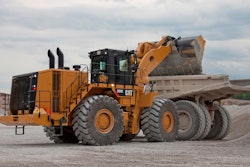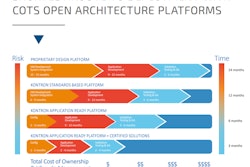Even as connected and autonomous vehicles approach real-world readiness, concerns still linger about the effectiveness of currently available automotive cybersecurity solutions. This is particularly challenging for commercial and public sector fleets, where threats are more complex and security breaches could have devastating consequences in terms of lost productivity, disrupted supply chains, and plummeting revenues.
New analysis by Frost & Sullivan, "Automotive Cybersecurity Emerges as a Strategic Priority in an Era of Connected and Autonomous Commercial Vehicles," finds that automotive cybersecurity solutions are emerging as a strategic priority for automakers, many of whom are partnering with automotive cybersecurity specialists to ensure the safe and successful deployment of connected and autonomous commercial vehicles.
"Hackers perceive commercial vehicles carrying high-value goods to be more lucrative than passenger vehicles," says Sathya Kabirdas, Research Director – Connected Fleets at Frost & Sullivan. "Greater sophistication makes cyber threats harder to identify. At the same time, these threats are no longer universal; they are evolving to target specific industries and use cases."
Frost & Sullivan estimates that 55% of trucks in North America and 43% of trucks in Europe will be connected by 2025. This will highlight the critical need for robust cybersecurity solutions with active multi-layer protection that address the unique safety requirements of connected and autonomous commercial vehicles.
"Ideally, such solutions should also have future-proof technologies designed on the premise that the vehicle's systems can be penetrated in ways that were not observed when the vehicle was designed," notes Byron Messaris, Senior Mobility Consultant at Frost & Sullivan. "Accordingly, they will employ compelling countermeasure-based technology in machine learning (ML) to ensure maximum protection."
Several new companies and partnerships are already transforming the automotive cybersecurity space. SafeRide Technologies, for instance, has developed solutions that leverage AI and ML technologies to detect and prevent not just known but unknown threats as well. Simultaneously, the addition of software capabilities to its vSentry solution, through a strategic partnership with Irdeto, highlights the central role that comprehensive, advanced cybersecurity solutions will play in the future of connected and autonomous commercial vehicles.



















